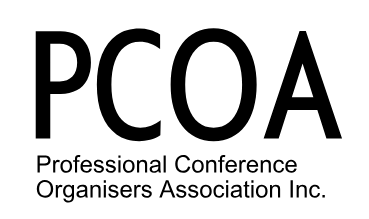The full interview by Joyce DiMascio, micenet with BECA’s new chair Leo Jago
March 8, 2022

Joyce DiMascio micenet sat down with the new chair of the Australian business events industry’s advocacy body the Business Events Council of Australia to find out the challenges and priorities for a big job ahead. Missed yesterday’s story? Read it here.
Why did you accept the invitation to be the chair of BECA?
I have been involved in business events research for over 20 years and BECA has been one of the key drivers of the need for research to underpin the development of the business events industry.
I felt that this was an opportunity to “give back” to the organisation for the support it has provided over the years.
What are the major challenges facing BECA as the industry’s representative body?
Whilst I believe BECA has been effective in providing “one voice” to government on behalf of the industry, much of this effort has been based on the voluntary contributions of its members.
Given that these members have their own organisations to run in a difficult environment, this volunteer commitment to BECA is not sustainable.
The industry is complex and it is difficult to communicate the broad-based benefits of the industry to government.
As business events cut across many areas of government, it is necessary to engage with a range of ministers in addition to the tourism minister – this is an incredible challenge.
Working with government to ensure that the recovery of business events and the further development of the industry are well recognised in THRIVE 2030 [the next nation strategy for the visitor economy].
The government is being hit for funds from all sides, so the opportunity for business events to get airtime with government will be difficult.
What do you want to achieve in the next 100 or so days – ahead of the next federal election which is due in May?
Ensure that the business events industry continues to speak to government with “one voice”.
Have government recognise the important role that business events have underpinning the recovery of other sectors in the economy and have government provide the support that is required for BE to recover from COVID.
Ensure that the government and opposition both agree to an ongoing financial commitment to the [Tourism Australia Business Events] Bid Fund that is due to expire in June 2022.
Why has it been so difficult for the business events sector to get targeted appropriate support during the pandemic even though it was the first industry to be shut down and the last to reopen fully?
As indicated, the BE industry is complex, making it more difficult to understand and support. The fact that there is no single ANZSIC code for the industry means that statistics to support the contribution of the sector are not readily available.
Business events tended to be “lumped in” with the broader events industry that often receives support from portfolios such as arts, sport and agriculture in addition to tourism. BE was somewhat of an outlier here.
The Commonwealth versus state conflict worked against support for business events in relation to insurance with both tiers of government claiming that the other should be responsible.
Business events did receive $56 million from the government for the Business Events Grant Program but the criteria for the program did not align with BECA’s recommendations and the program did not have the desired benefit.
What difference do you think you can make in your first term as chair?
I believe that I am seen to be someone who is consultative and strives for collaboration. I hope that this approach will help overcome frictions that may occur between members [of BECA] that will detract from the industry speaking with a unified voice.
The PCO Association is a BECA member
